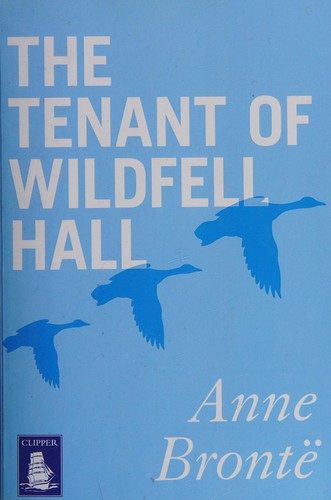729 pages
English language
Published Nov. 2, 2013 by W F Howes Ltd.

729 pages
English language
Published Nov. 2, 2013 by W F Howes Ltd.
Gilbert Markham is deeply intrigued by Helen Graham, a beautiful and secretive young woman who has moved into nearby Wildfell Hall with her young son. He is quick to offer Helen his friendship, but when her reclusive behaviour becomes the subject of local gossip and speculation, Gilbert begins to wonder what she is hiding. Anne Bronte's second novel seemed to many contemporary readers shockingly unlike her first, Agnes Grey, published in the previous year. There, Charlotte Bronte had admired her sister's 'quiet description and simple pathos', but she was disturbed by The Tenant of Wildfell Hall, which reminded reviewers of Wuthering Heights: it was, in spite of its 'excellent moral', 'coarse, not to say brutal'. For Anne's heroine, Helen Huntingdon, having endured too many of the 'revolting scenes' deplored by reviewers, leaves her dissolute husband in order to earn her own living and rescue her son from his influence. A …
Gilbert Markham is deeply intrigued by Helen Graham, a beautiful and secretive young woman who has moved into nearby Wildfell Hall with her young son. He is quick to offer Helen his friendship, but when her reclusive behaviour becomes the subject of local gossip and speculation, Gilbert begins to wonder what she is hiding. Anne Bronte's second novel seemed to many contemporary readers shockingly unlike her first, Agnes Grey, published in the previous year. There, Charlotte Bronte had admired her sister's 'quiet description and simple pathos', but she was disturbed by The Tenant of Wildfell Hall, which reminded reviewers of Wuthering Heights: it was, in spite of its 'excellent moral', 'coarse, not to say brutal'. For Anne's heroine, Helen Huntingdon, having endured too many of the 'revolting scenes' deplored by reviewers, leaves her dissolute husband in order to earn her own living and rescue her son from his influence. A passionate and courageous challenge to the conventions supposedly upheld by Victorian society and reflected in circulating-library fiction, The Tenant of Wildfell Hall is compelling in its imaginative power, in the bold naturalism of its central scenes, the realism and range of its dialogue, and in its psychological insight into the characters involved in the marital battle.